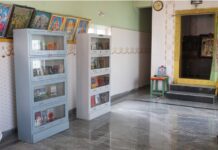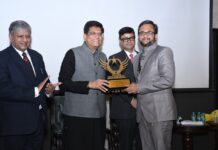By Dr. H. Kalpana, Professor and Head, Department of English, Pondicherry (Central) University, Puducherry
Thanks to COVID 19, there has been an unprecedented discussion about ‘to be’ or ‘not to be’ regarding examinations. Quite a few are of the opinion, that physical well-being of students is of paramount importance and hence, in a situation such as this, there is no need to conduct examinations. A select few think that it is only through examinations that one can gauge the quality and standard of students, consequently not holding it leads to deterioration in learning standards. Few others are of the view, that one way or the other, students need to progress and therefore, moving them ahead in any mode is important and examinations should not become a barrier. Finally, what do students themselves think? Majority of the students do not want to write any kind of examination, as they think it is a burden, and would like to get away from it. Hence, getting a promotion without examinations is according to them, a great idea. In fact, in the recent months, degree students have cited varied issues regarding not writing examinations such as not having stable internets, not having internet connectivity at all, not having access to laptops/smart phones as well as the claim that they have had to leave laptops and study material in hostels and therefore, do not have access to them. The query now that we all need to ponder upon is how relevant are examinations in our country? Be it Class X, Class XI, Class XII, or higher degree examinations the question is what are we testing?
 We need to remember that examinations primarily, are held, to assess the knowledge and measure the amount of knowledge acquired by a student. Examinations, in fact, determine various cognitive, analytical, and diagnostic skills of a student. Unfortunately, in our country, be it school/college/university, the pedagogical methods are so structured that instead of developing skills of comprehension and understanding, most students learn only to memorise and reproduce. In a way, learning is promoting a low level of thinking. As a result, what is judged is not knowledge but the ability to retain and remember various textbook materials without knowing the application methodology. One can state facilely that the level of learning in the country has decreased considerably and students are deficient in basic skills such as writing well, reading critically, and analysing content. Furthermore, one needs to acknowledge that writing examinations is in a way, a type of training as students learn to manage time, write well, and in sequence. Examinations enhance competitiveness and create a sense of satisfaction and happiness along with building confidence. Unfortunately, the methodology and mode of testing adopted does not train the students in any of these elements and makes them nervous and depressed leading to various kind of breakdowns. The ideal method would be to have continuous assessment wherein every unit completed, is tested for understanding, and a final examination needs to be more of just a routine two-hour or one hour paper to find out if the earlier assessments are validated.
We need to remember that examinations primarily, are held, to assess the knowledge and measure the amount of knowledge acquired by a student. Examinations, in fact, determine various cognitive, analytical, and diagnostic skills of a student. Unfortunately, in our country, be it school/college/university, the pedagogical methods are so structured that instead of developing skills of comprehension and understanding, most students learn only to memorise and reproduce. In a way, learning is promoting a low level of thinking. As a result, what is judged is not knowledge but the ability to retain and remember various textbook materials without knowing the application methodology. One can state facilely that the level of learning in the country has decreased considerably and students are deficient in basic skills such as writing well, reading critically, and analysing content. Furthermore, one needs to acknowledge that writing examinations is in a way, a type of training as students learn to manage time, write well, and in sequence. Examinations enhance competitiveness and create a sense of satisfaction and happiness along with building confidence. Unfortunately, the methodology and mode of testing adopted does not train the students in any of these elements and makes them nervous and depressed leading to various kind of breakdowns. The ideal method would be to have continuous assessment wherein every unit completed, is tested for understanding, and a final examination needs to be more of just a routine two-hour or one hour paper to find out if the earlier assessments are validated.
Besides these aspects, the other issue that one needs to think of, is the type of question paper. For some strange reason, our educational system is tuned to the idea that any examination has to be a three hour paper with paragraph answers to be written and even science subjects end up testing various laws and theories instead of providing a method for students to think. Setting a question paper should involve deep thinking and must be of various types. Multiple choices, true/false, one-word answers and matching are some common objective type of questions. Besides these we can have short answers and essays as well as open book examinations. Oral examinations are extremely relevant when we have challenged students.
Students today are relieved when they have no examinations, as they are conditioned from the time they start school to believe that this is a means of progress from one level to another and that any lack of performance is punished strictly both at home and in school/college by resorting to both mental and physical violence. Students are also affected due to peer and societal pressure. It is high time, that we as teachers and administrators need to rethink, the role of examinations, as these should not be judgements of memory and retention but more of knowledge gained. It is also wrong to think that examinations need to be done sitting in a large room with an invigilator, with several students writing on sheets for three hours. In fact, it is essential to train students not to cheat and to make them understand, that we are only measuring their evaluative and creative skills. We need to devise innovative methods to test students that could be in the form of presenting reports, making short films, doing short reviews, making videos, an audio clip or practical work and so on. Unless, we begin to evolve interesting means of assessing the students, we may end up making students think that not writing examinations is fun. As Pete Seeger points out, “Down through the centuries, this trick has been tried by various establishments throughout the world. They force people to get involved in the kind of examination that has only one aim and that is to stamp out dissent”. It is essential to create students who can think and thanks to COVID around maybe we can initiate few educational reforms at least as far as examinations are concerned.
Corporate Comm India (CCI Newswire)


































